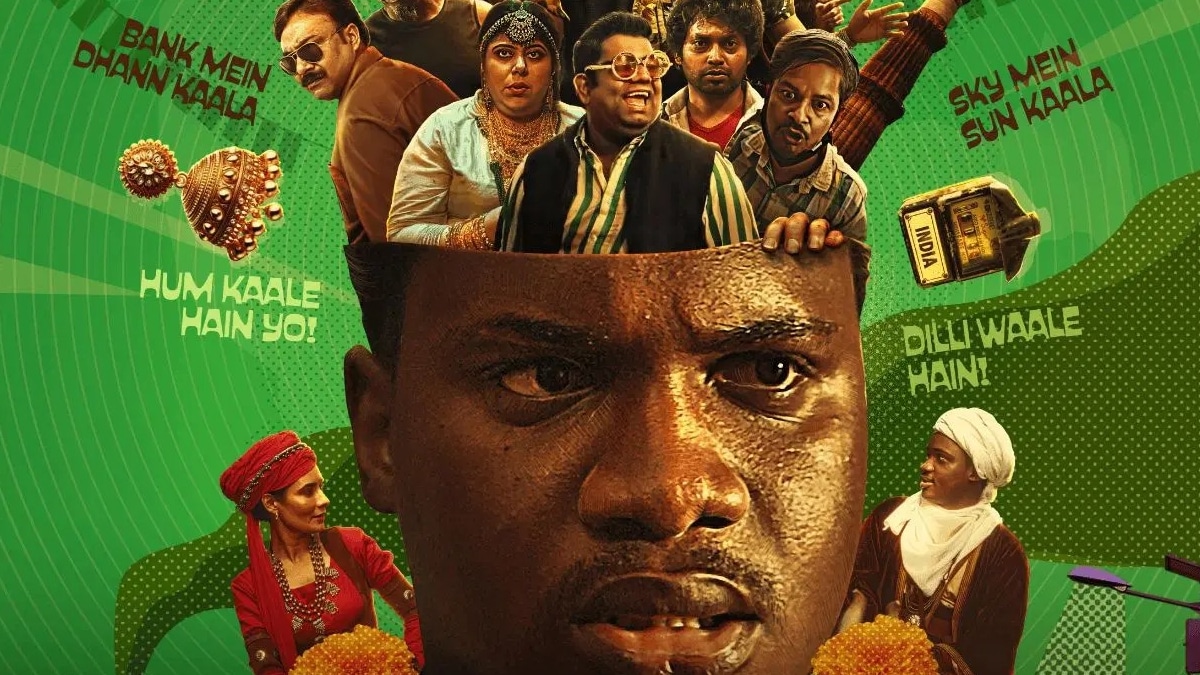

Dibakar Das Roy's "Dilli Dark," now playing in theaters after a festival run, throws viewers headfirst into the chaotic, often unsettling, heart of Delhi. The film, starring Samuel Abiola Robinson as Michael Okeke, an African student navigating the city's underbelly, strives to be a sharp satire, tackling racism, prejudice, and the search for opportunity with a darkly comedic lens.
The film’s premise is promising. Michael, struggling to make a life for himself while pursuing an MBA, becomes entangled in the city's drug scene. He faces constant suspicion and prejudice due to his African roots. His encounters highlight the casual racism prevalent in Delhi, a theme the movie initially explores with unflinching honesty. The narrative takes a turn when Michael meets Maansi (Geetika Vidya Ohlyan), a self-proclaimed Godwoman who offers a potential path to survival. The film then delves into the world of spiritual gurus and miracle cures, adding another layer to its social commentary.
Robinson delivers a compelling performance as Michael, capturing both his naivete and growing disillusionment. He embodies the character's struggles, making the audience root for him despite his flaws. Ohlyan is equally impressive as Maansi, portraying her with a mix of cunning and vulnerability. The supporting cast, including Shantanu Anam as Debu, Michael's empathetic neighbor, adds depth and humor to the narrative.
"Dilli Dark" attempts to weave together multiple threads: racism, the exploitation of faith, and the harsh realities of life for outsiders in Delhi. It holds a mirror to the ugliness that exists within the city, unafraid to portray the prejudices and stereotypes that often go unacknowledged. The film uses humor effectively, drawing comparisons to other contemporary Bollywood comedies like "Delhi Belly" and "Fukrey," known for their raw and unapologetic style. The dialogues are sharp, and the situations are often absurd, creating moments of genuine comedic brilliance.
However, some critics note that the film occasionally falters under the weight of its own ambition. As the story progresses, the focus shifts from Michael's experiences with racism to a more generalized critique of Delhi's societal ills. The screenplay, while interesting in parts, becomes somewhat disjointed, particularly in the extended sequences within Maansi's ashram. The inclusion of numerous characters and subplots, while adding to the film's tapestry, sometimes distracts from the central narrative. The ending, though thought-provoking, may feel protracted to some viewers.
Despite these shortcomings, "Dilli Dark" remains a worthwhile watch, particularly for those seeking a departure from mainstream Bollywood fare. It tackles relevant social issues with humor and satire, prompting viewers to reflect on their own biases and the complexities of urban life. The film's strength lies in its willingness to confront uncomfortable truths and its ability to find humor in the darkest of situations. However, the liberal use of English and swear words may limit its appeal to a broader family audience. Overall, "Dilli Dark" is a bold and provocative film that, while not without its flaws, offers a unique and insightful perspective on life in the Indian capital.